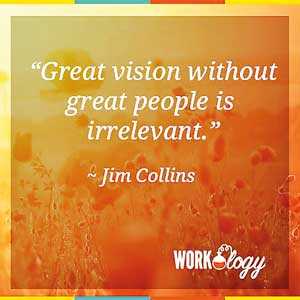Saturday Feb 21, 2026
Saturday Feb 21, 2026
Tuesday, 28 July 2020 01:38 - - {{hitsCtrl.values.hits}}
Can HR influence a company’s direction and contribute to corporate success especially after this pandemic is over? Because the coronavirus pandemic has rapidly and profoundly changed the world of work.
A study commissioned by the ILO in Sri Lanka on ‘Operationalising Human Resource Development Practices in the Public Service’ highlighted the need for modernisation of human resource practices in the Sri Lankan public sector, in line with Malaysia and South Korea.
Today in Sri Lanka, HR has gone from the traditional hire and fire role to a strategic partner at the table with finance, marketing and other business centres that are not centres of profit for the organisation.
The job of HR, as is the job of all such departments, is to ensure that the business gets the most out of its employees. Another way to put this is the human resource leadership in a company needs to provide a return on the investments made on its people. This makes HR a highly complex function – because it deals with not just management issues but human ones as well.
Also it is not so difficult for anyone to understand why highly productive employees are needed for any business to succeed. Then, finding them, managing them, motivating them and retaining them are key responsibilities of HR. In many companies, HR still gets it wrong – they either operate as an outfit to please the boss or put up a health-and-happiness sideshow to please the employees.
These are extremes of course, but if there is anything I have learned over the past 20 years, it is that that’s an outrage, made only more so by the fact that most HR leaders don’t know how to fix it. HR in my view should be every single company’s engine of growth. What could possibly be more important for a company than who gets hired, developed, promoted, or moved out of the door?
After all, business is a game to make profit and, as with all games, the team that puts the best people on the field and gets them playing together as a team wins and makes adequate money to breed more success, give salary increases to their players and to become well-known in the industry.
Challenge for HR
To be fair by HR, it’s not that easy to get the best out of people and some people are hard to manage. However, you would never know that though, until you get the right man on board as your HR head.
On the other hand, even though many CEOs believe that people power is the real engine of any business, in many companies the CFO reigns supreme and as a result HR is relegated to the background.
This just doesn’t make sense. If you owned the best cricket team in the world, for instance, would you hang around with the team captain or the Treasurer of the Board? Sure, the Treasurer can tell you how much money the Board has, but the captain knows what it takes to win, how good each player is and where to get strong recruits to fill talent gaps in the team.
That’s what HR should be all about. And as we see when we move around, it’s usually not. That was never as painfully clear to us as it was few years ago when we spoke to some HR professionals about their role.
At one point, we asked the audience: “How many of you work at companies where the CEO gives HR a seat at the table equal to that of the CFO or the Marketing head?” After an awkward silence, fewer than five people raised their hands. Appalling! Since then, we’ve tried to understand why HR often gets marginalised in the management team, and as noted above, there are at least two poles of bad behaviour.
HR’s role
That occurs when HR managers act like kingmakers, making and breaking careers, sometimes not even at the CEO’s behest.
These HR departments can indeed be powerful but often in a detrimental way, prompting the best people to leave just to get away from the intrigue of it all, then after a while HR becomes a drag on the business and finally get marginalised for good.
Then, you get the other extreme: HR departments that plan picnics, put out the in-house newsletter and generally drive everyone crazy by enforcing rules and regulations that appear to have no purpose other than to increase bureaucracy.
Get HR to do its real job
So to get it right, it all starts with the kind of people boards appoint to run their HR – not kingmakers or cops but real HR professionals, people with real stature and credibility.
In fact, they need to fill HR with a special kind of hybrid person as suggested by a former GE CEO late Jack Welch: people who are one part a priest, hearing all sins and complaints without recrimination, and other part the parent role, loving and nurturing but giving it to you straight when you are off-track.
Priest-parent types can rise through HR, but more often than not, they have run something during their careers, such as a factory or a function. They get a good feel of the business – its inner workings, history and tensions, the hidden hierarchies in people’s minds. They are known to be relentlessly candid, even when the message is hard, and hold the confidence at any cost.
Indeed, with their insight and integrity, the priest-parent earns the trust of the organisation. But priest-parent types don’t just sit around making people feel warm and happy. They make the company better, first and foremost by overseeing a rigorous performance management system that lets every person in the organisation know where he or she stands, and monitoring that system with the same intensity of legal compliance. CEOs should also make sure that HR fulfils two other roles; that they create effective mechanisms to reward and recognise the right people in the business and prepare the organisation to face their most fired up relationships with in the business, such as those with unions, individuals who are no longer delivering results, or stars who are becoming problematic, for instance, becoming arrogant, greedy, instead of growing.
Now, given our experience with HR, the kind of high-impact HR activity we talked about probably sounds like a pipe dream for many CEOs.
But given the fact that most CEOs loudly proclaim that people are their ‘most important asset’, CEOs need to put their money where their mouth is and get HR do its real job: elevating people management to the same level of proficiency and skill as finance or marketing.
Since people in our view is the only resource that can deliver discretionary effort that can deliver extraordinarily value to a business, what could be more important to a business than to put money behind the people who run your business and create competitive advantage that other companies cannot replicate in a hurry.